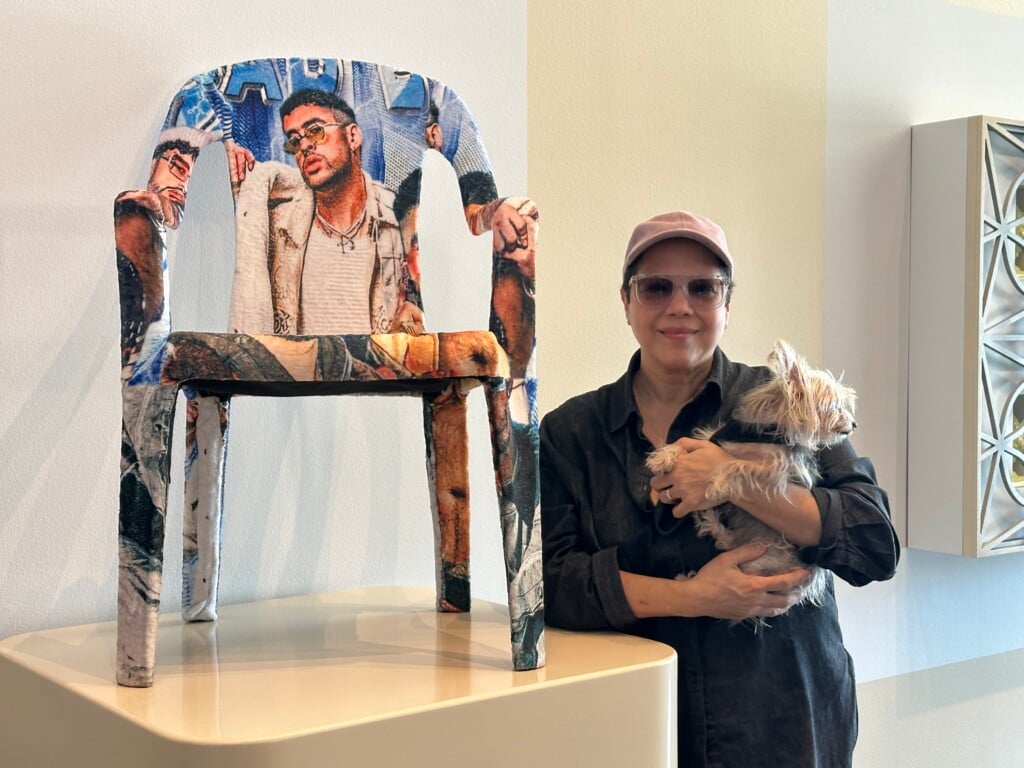Mark One Electric keeps confounding government officials in charge of minority contracts

Earlier this year, the city of Kansas City, Missouri, solicited bids from electrical companies. The city was looking for a business to perform regular maintenance on its electrical systems and equipment.
Which do you think the city chose?
a. The low bidder
b. A minority-owned business
c. None of the above
The correct answer is “c,” Mark One Electric Co.
Local governments have a complicated relationship with Mark One. It’s a relationship, I admit, that I don’t completely understand.
Not for lack of trying. In June, I wrote that Mark One had received $40 million for work at Kauffman and Arrowhead stadiums (“Making Her Mark,” June 11). Mark One’s efforts counted toward the project’s diversity goals. The company is run by a woman, Rosana Privitera Biondo. But competitors insist that Mark One isn’t disadvantaged because it has grown so large.
Since then, I’ve learned of another contract that has left Mark One’s rivals seething.
A family-owned business on Troost Avenue, Lynch Electrical Inc. was the “a” and the “b” in the pop quiz above. Company Vice President Ivy Lynch-Shaw says she is “really pissed off” at the process through which Mark One got the city contract. “I worked really hard on that bid,” she tells me.
City officials are vague on the factors that pushed Mark One ahead of Lynch Electrical and R.F. Fisher, which also submitted a lower bid. When I asked what factors the city considered in awarding the contract, Delois Moore, the city’s buyer, told me: “The selection committee evaluated all information in the city’s possession in making its selection.”
Gee, that’s helpful.
Moore went on to say that the selection committee did not consider the minority- or woman-owned business status of the applicants.
That comment was strange for two reasons:
1. I did not ask Moore about minority or woman-owned businesses — I simply asked why the contract didn’t go to the low bidder.
2. The lack of consideration for race and gender is at odds with the city’s request for proposals. Page 5 of that document, sent out by the city in March, says it’s city policy to give minority- and woman-owned companies “maximum opportunity” to participate in city contracts.
Confused? Me, too.
Kansas City’s Human Relations Division is charged with monitoring this stuff. Lynch-Shaw says the department is not doing enough to help small businesses.
In any case, Mark One is both eligible and ineligible for affirmative-action programs.
As you might imagine, there are rules to ensure that companies applying for affirmative action are really disadvantaged. One of the rules involves ownership stakes. A white executive can’t barter off a 5 percent share of a company to a person of color or to a woman and call his company minority-owned. He’d have to sell at least 51 percent of the operation.
Privitera Biondo became president of Mark One in 1994, taking the reins from her father, Carl “Red” Privitera. Her three brothers serve as vice presidents.
I understand it’s quite possible that Carl Privitera asked his daughter to run the operation because he thought she’d do the best job and not to set up Mark One as a woman-owned business.
But, really, she owns 51 percent of the company when papa Privitera is still living, and she’s one of four children to work in the business? A reasonable person, it seems, can question the legitimacy of Mark One’s ownership structure without casting aspersions on Privitera Biondo’s skills as an executive.
There’s also the matter of Mark One’s size.
You’ve probably seen Mark One’s maroon logo somewhere. It’s a big company. Too big.
[page]
As I noted in June, an electrical company in Raytown, Electrical Corporation of America, sued the city in 2004 after City Hall steered a project to “disadvantaged” Mark One. ECA argued that Mark One did not qualify for preferential treatment because its sales were more than $12 million — the ceiling for electrical contractors wanting to qualify for affirmative action.
A federal judge sided with ECA. The city dropped Mark One from its directory of minority and woman-owned businesses.
Mark One sued to get back on the directory. It’s now classified as a “women’s business enterprise” (WBE) when it comes to big jobs such as power-line stringing, but not for more basic stuff like cable splicing.
Mark One’s uncertain WBE status makes ledger keeping a challenge.
When I asked about work at the stadiums back in June, Gayle Holliday, who has a $320,000 contract to oversee minority participation in the stadium work, seemed uninterested in investigating.
Curious to know whether Mark One was being counted as a WBE on other taxpayer-supported projects, I recently asked the Kansas City Tax-Increment Financing Commission to pull the affirmative-action report on the new headquarters for J.E. Dunn Construction downtown.
Sure enough, Mark One is listed as a WBE subcontractor on the project. Or it was.
The TIF Commission sent me a document showing that Mark One has earned more than $3 million on the Dunn building. The $496,000 that Mark One collected in May amounted to almost 17 percent of the total outlay to minority- and woman-owned businesses that month.
But nearly all of the $3 million paid to Mark One has now been subtracted from the record showing Dunn’s use of woman-owned businesses. My copy of the report indicates that at some date between May 31 and the present, Sandra Rayford, affirmative-action compliance officer, drew a line through the $3 million and wrote in “$200,000.”
That basically reaffirmed the point I tried to make in June: In most instances, Mark One does not qualify as a WBE.
Rayford says Mark One was certified as a WBE only for outside work (stringing power lines, remember?) at the time that J.E. Dunn hired the company. Rayford says J.E. Dunn officials knew of Mark One’s status, but a Dunn employee made an “error” in filling out the compliance report.
I’ve been following minority contracting in Kansas City for several months now. It’s a sordid business.
There’s a pile of evidence that J.E. Dunn used front companies to meet affirmative-action goals during the construction of the H&R Block world headquarters. The TIF Commission has gone on several fact-finding tours but has yet to assign guilt in the matter (“Dunn Deals,” March 19).
Last month, the City Council approved a $1.75 million annual contract with a company to provide electricity, Internet and other utilities to trade shows at Bartle Hall. The contract went to a new company, Green Wave Technology.
Green Wave says it’s a “women owned business.” But the two principals, Carol Blumel and Irene Konrath, happen to be married to men who are prominent in the electrical and construction fields. Larry Blumel is a former senior vice president at Capital Electric. Emil Konrath is the president of the Konrath Group, which managed construction at Bartle Hall during its most recent renovation.
The city’s Human Relations Division says Green Wave has not applied to become a WBE. But existing minority and women contractors in Kansas City smell a rat. On July 29, the Minority & Women Coalition wrote a letter to City Manager Wayne Cauthen formally protesting the Green Wave contract.
[page]
City staffers identified Emil Konrath and Larry Blumel as Green Wave’s principals in a fact sheet prepared for the council. That their wives incorporated the business seems a cheesy attempt to qualify for preferences — if not now, then sometime in the future. (Emil Konrath and Carol Blumel did not return phone calls.)
Of course, one of the protesters of the Green Wave deal has her own issues.
Privitera Biondo was among those who signed the letter to Cauthen.
Click here to write a letter to the editor.




